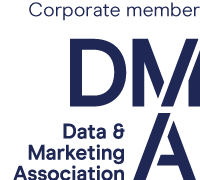If you’re new to sourcing marketing data, it can seem like a pretty daunting task. You have probably googled marketing lists or something similar and are faced with millions of results and pages of adverts.
So, where do you start? Who should you contact and what should you ask for? We’ve put together a check list which will help you to get suitable, tangible information to help you with your search.
For this we have detailed our top 10 tips for making this process as smooth as possible:
1. Whittle out any undesirables
Just like every sector, the direct marketing industry has a very small number of rogue traders. With all UK suppliers, you should check that they are members of the Data Marketing Association (DMA). If you’re sourcing data from overseas, you can also check the relevant marketing associations within that country, most have one.
You should also be very wary of any companies which accept payments via PayPal this is a big red flag for dodgy dealing!
2. Get key information in writing
Request the key information in writing. This way, its much easier to review like for like quotes and check that all the information matches what you’re after.
3. Give as much relevant information as possible
When you detail your brief, include all the relevant information including geography, contact fields, industries, sizes of companies and contact roles for B2B data.
4. Always get a guarantee
While you’re doing your research its important that you ask data providers for a written guarantee on the accuracy of the data. Always check their policy for data replacement should there be any issues with the file. Don’t just accept a salespersons word for it. If a supplier is not willing to give you any guarantees then they are most likely hiding something. This is a major red flag!
Any reputable supplier or broker will always give guarantees with their data. Suppliers would have no issues in replacing any data that didn’t meet its guarantee. It is as much for their reputation that they have these in place.
5. Request a sample
Ask to see and verify some sample data, as this helps you to understand how the data will be displayed. These samples are representative of your overall data quote. The details within your sample will be picked at random.
6. Request a breakdown
Before you get your full quote, make sure to ask for a breakdown of your data, especially when dealing with B2B requests. This will give you an indication of volumes in each industry and the sizes of the companies which are available. This is a great opportunity to understand the profile of the companies within the data and check it matches your brief to ensure you achieve the best results for your marketing campaign.
7. Make sure to get the right data licence for your campaign
Always verify what usage options are available. For example, single-use and 12-month multiple use. Think about what you’re trying to achieve in your marketing campaign. How long do you expect the campaign to run? Additionally, always make sure to check if there are any restrictions. When sourcing marketing data, often suppliers will limit the number of emails uses in a 12-month period.
8. Don’t be afraid to pick up the phone
Speak to people as well as just sending emails! This is vital as many providers who hide behind a website tend to be the more suspect suppliers. Speak to a human being and sound them out.
9. Don’t always trust a discount
Remember; whilst volume discounts can be enticing, it may often be better to test smaller volumes of data. This will help ensure that the source which you’ve selected is suitable for you.
10. Always check who you’re buying from
Research the company further to check out their reputation. This includes their website and how up to date it is. Do they have testimonials? Are they featured in any 3rd party websites which they’re featured on? A key one to check is the data marketing association (DMA).
Just for good measure, here are some quickfire ways to quality check your provider.
– Make sure that the company you are dealing with are who they say they. check they have the right direct marketing credentials.
– Credit check the company. If they only turnover 40k yet have the worlds best data with 2000 telemarketers for in-house data cleaning, then they are lying. It doesn’t add up. There are companies out there who will lie about their credentials so its always safer to check these yourself .
– Check the LinkedIn profile of salesperson you are speaking to. How long have they worked in direct marketing? What are their credentials? Do they seem professional? Are they qualified to advise you on your direct marketing? Are they journeyman field sales who change company every year after missing most sales targets?
Remember, data which is sourced from suitable providers or brokers can give you exceptional results. However, at the other end of the spectrum, data which isn’t sourced in accordance with best practice, will have dire consequences.
If you follow this process, you’re giving your marketing campaigns the best chance of success.






